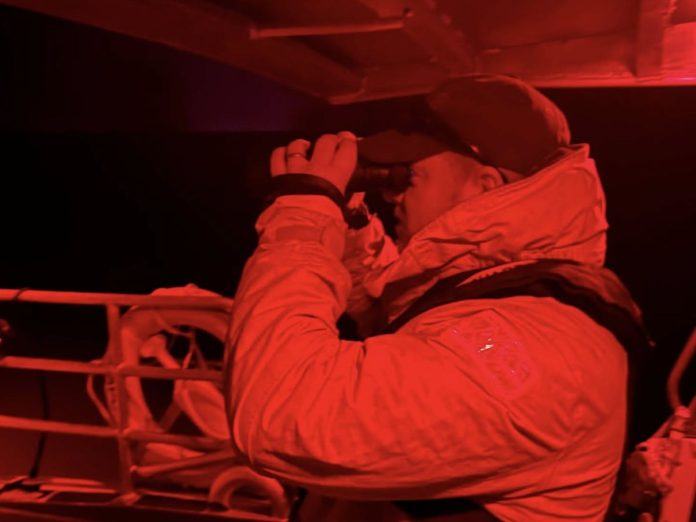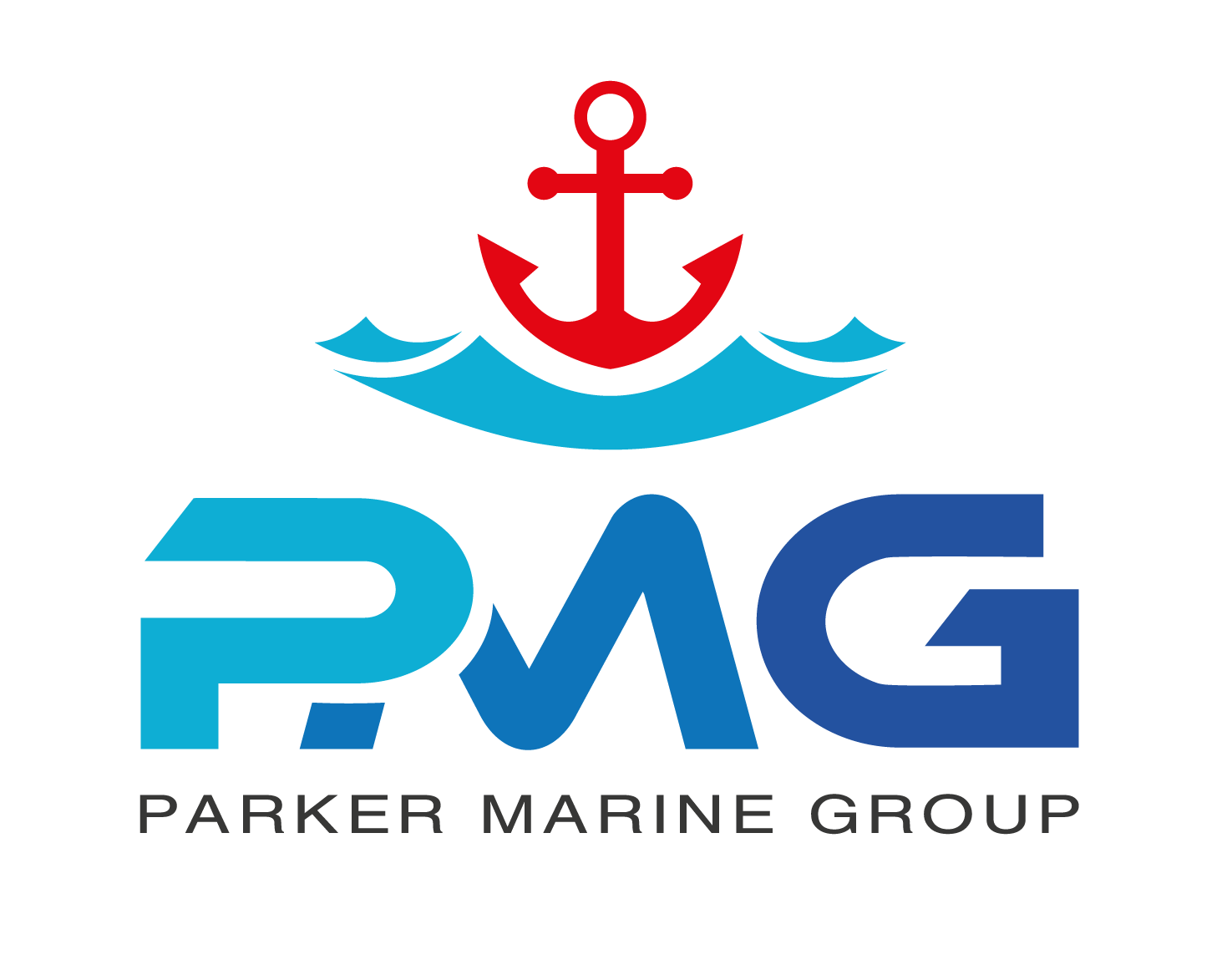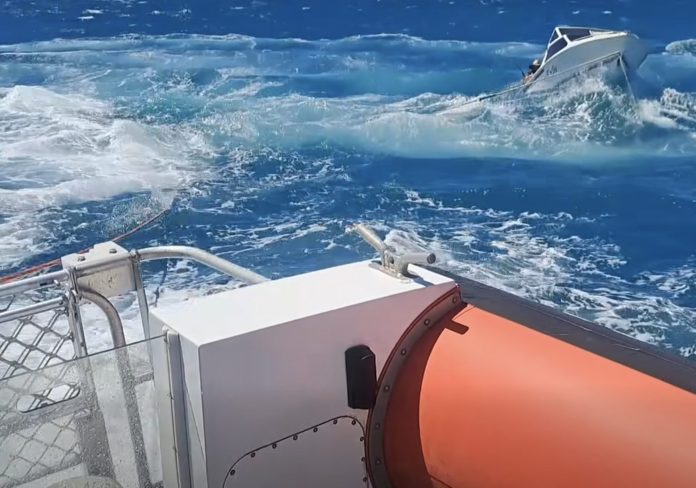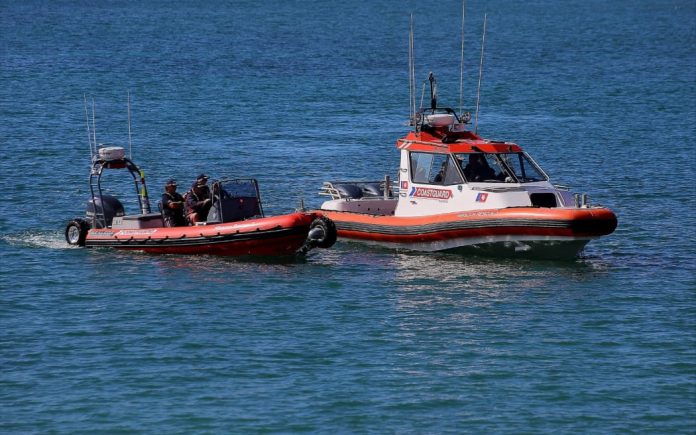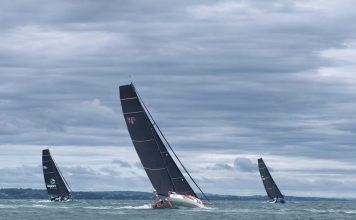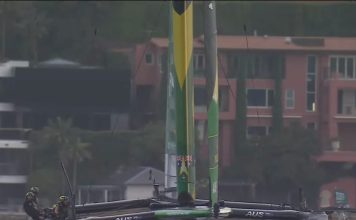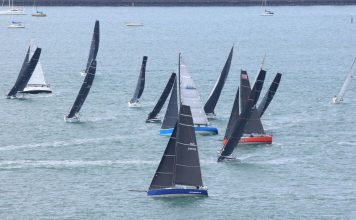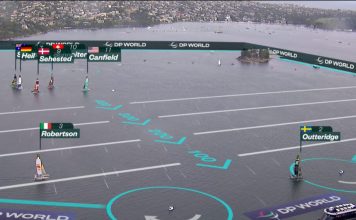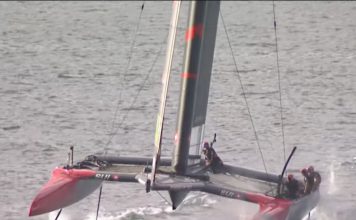Five boaties were dramatically rescued by Coastguard North Canterbury this past Saturday evening (5 July 2025), after their vessel ran into serious trouble attempting to cross the notorious Motunau Bar, located roughly an hour north of Kaiapoi.
The incident began just after 5pm, when a member of the public spotted a boat in distress near Motunau Beach and called Police. The vessel, inbound at the time, was struck by a large wave while crossing the bar. The impact swamped the boat with water, dislodged its fuel tanks, and forced the skipper to retreat and anchor approximately 400 metres offshore in rocky waters between Motunau Island and the bar itself. As the sea state deteriorated, sets of 3-metre waves continued to batter the stranded vessel.
One person was thrown overboard by the force of the waves. Fortunately, others on board were able to pull them back to safety. However, with darkness falling and the boat in an exposed, dangerous location, the situation remained critical.
Over the following hours, the boaties used every means available to raise the alarm — including a VHF radio call on Channel 63, a mobile phone (while the battery lasted), a Personal Locator Beacon (PLB), and an Emergency Position-Indicating Radio Beacon (EPIRB). A faint “mayday” call was heard around 8pm, prompting a coordinated multi-agency response.
At around 8:30pm, Police notified Coastguard North Canterbury. Five volunteers from the unit scrambled to get the rescue vessel Kaiapoi Rescue underway, knowing the distressed boaties had been in the waterlogged vessel for hours and had already faced a man overboard situation. The crew set off on the 20-nautical mile journey north through challenging conditions. Sea state and visibility were poor, and careful navigation was required to avoid kelp ingestion in the engines.
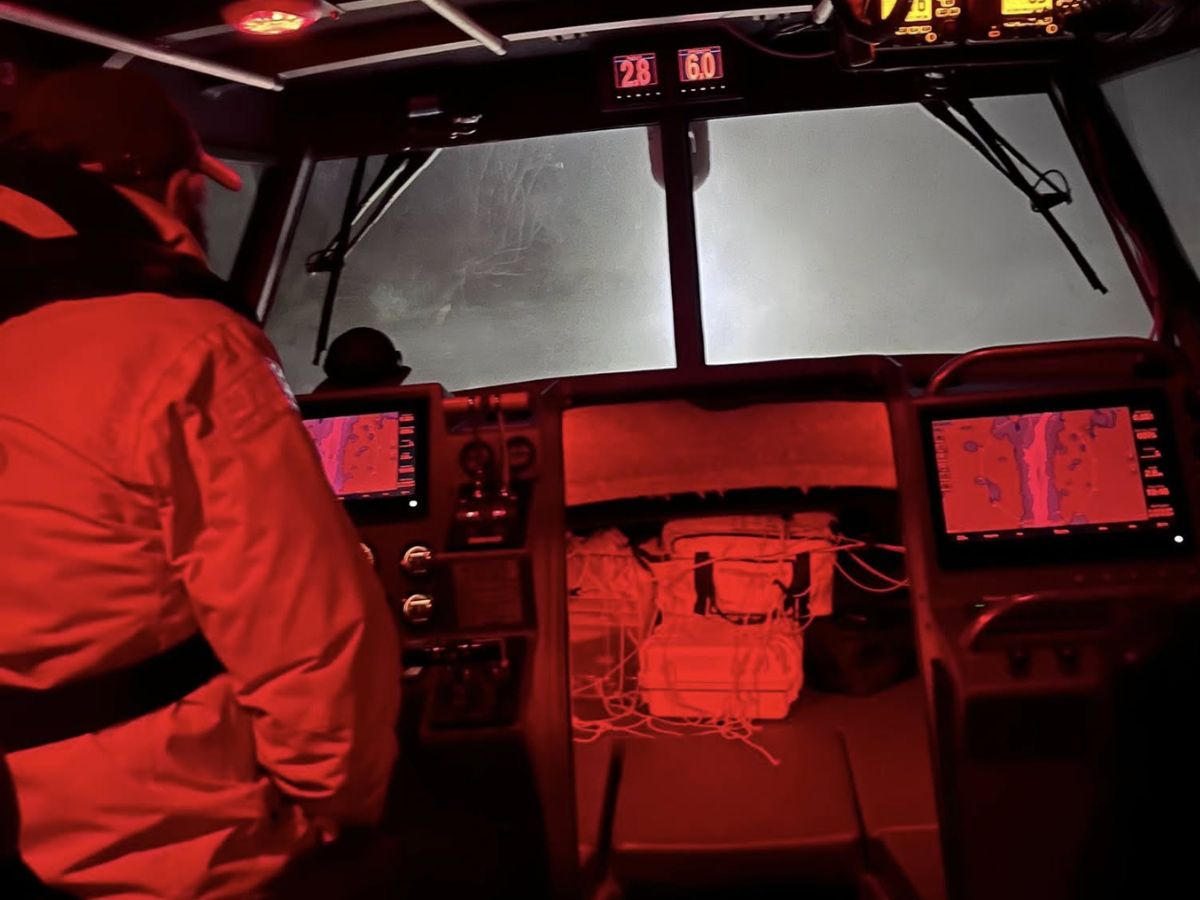
By 8:45pm, Kaiapoi Rescue had reached the scene. The crew located the vessel and quickly transferred all five individuals into their cabin. Once on board, the boaties were warmed with blankets and heat packs to gradually raise their body temperatures. The rescue vessel then made the return trip to Kaiapoi, arriving back at base around 1am.
Unit President Kevin Bryce praised both the preparedness of the boaties and the professionalism of the rescue effort. “Although this was a harrowing and concerning incident, the crew had the right comms equipment and were wearing lifejackets,” he said. “The boaties couldn’t believe we were able to reach them in such poor conditions.”
Bryce explained that night rescues at bar crossings follow a strict safety protocol, including the use of flares to mark Coastguard’s position. “Given how close we are to Christchurch International Airport, this coordination has to be extremely precise.”
He also acknowledged the cooperation of multiple agencies involved in the response: Maritime New Zealand Radio, Rescue Coordination Centre New Zealand, local SAR Police, Hato Hone St John, and air traffic controllers at Christchurch International Airport. “It was a seamless joint effort. The support of the local Motunau community was also critical in helping us understand the conditions on the ground.”
Upon return to shore, two Hato Hone St John ambulance crews were waiting to assess the rescued group. One person was transported to hospital with injuries from the bar crossing, while three others were treated for hypothermia.
While Coastguard’s volunteers returned home for some much-needed rest in the early hours of Sunday morning, the message from the unit is clear: bar crossings are dangerous, and preparedness is vital.
Boaties are urged to always log a bar crossing trip report via VHF radio or by calling *500. If a crossing report isn’t closed within 15–30 minutes and contact can’t be made, a search and rescue operation will be triggered. Always wear your lifejacket — it may save your life.








